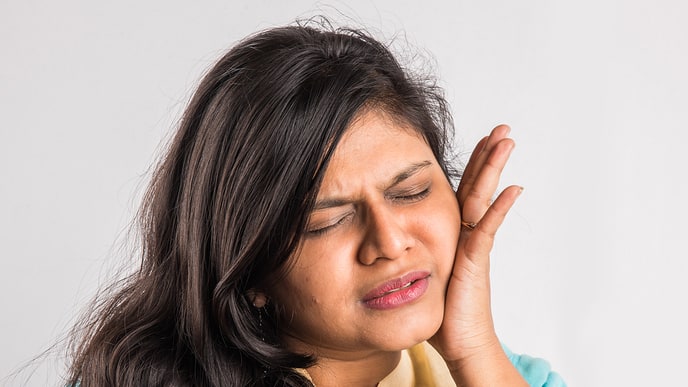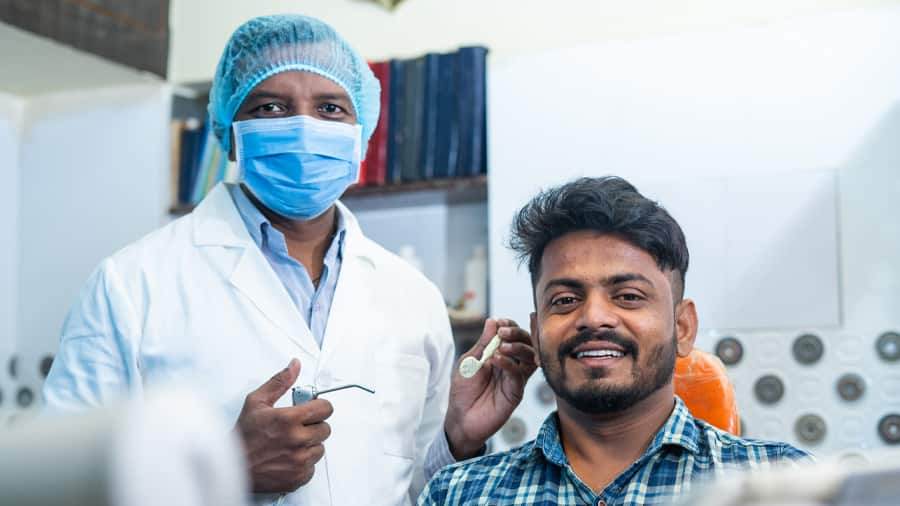What Is Dry Mouth?
Before we get into how dry mouth toothpaste can help, we should discuss what dry mouth is. Technically known as xerostomia. Don't worry about pronouncing it. Just know that dry mouth occurs when there's not enough saliva in your mouth. The following could cause dry mouth:
- Side effects from certain medications (antihistamines, decongestants, etc.)
- Toxicity from chemotherapy
- Head and neck radiotherapy
- Autoimmune disease
- Other conditions (uncontrolled diabetes, infections, hormonal changes, etc.)
The saliva in your mouth, you're going to want that. It's crucial for washing away food debris and acids from food and drink. When it's low, it can lead to tooth decay and cavities. Common symptoms include:
- Difficulty speaking, tasting, chewing, and swallowing
- Stickiness or dehydration in the mouth
- Cracked lips
- Sore throat
- Burning sensation occasionally
Dry Mouth Toothpaste
In recent years, you're now able to use dry mouth toothpaste to battle dry mouth and provide some relief to your parched mouth. Sweet, right? Some things to consider, though, when choosing toothpaste for dry mouth:
- Make sure it's designed to combat dry mouth
- Check to see if it contains fluoride to fight tooth decay
- Consult with your dentist to see if a prescription-strength or over-the-counter dry mouth toothpaste is right for you
Dry Mouth Remedies
The Indian Dental Association notes that while it is difficult to cure dry mouth, if caused by a disease but it can be relieved. Here are some suggestions that can help you. Try Sugarless Delight
- Chew on a piece of sugarless gum, or suck on a piece of sugarless hard candy for 5 to 10 minutes every two hours. This can help stimulate your salivary glands so you will have a more sustained flow of fluid in your mouth.
- Brush for Hygiene
- If you have dry mouth, your teeth and gums are more susceptible to infection, which not only leads to tooth loss but also can make your mouth feel drier. So it is important to brush after every meal and floss at least once a day.
- Avoid Alcohol
- Alcohol is another factor that dries the mouth. So, stop your alcohol consumption. Be wary of hidden alcohol in medicines and mouthwashes, which can be as high as 26 percent. As an alternative, look for alcohol-free mouth rinse.
- Use a Humidifier
- This can add much needed humidity to the air and prevent you from waking up with dry mouth. You will find vaporizers in most of the pharmacies or variety stores.
- Bring Water Bottle
- Frequently sip water, this will help keep your mouth lubricated.
- Avoid Aerated Drinks
Aerated drinks are not thirst quenchers because the acid in sodas and other carbonated drinks further dries out your mouth and can damage your teeth and gums. Limit Your Caffeine Intake
- Over indulging in caffeine will worsen a dry mouth. Limit yourself to one cup of coffee or tea a day.
- Home Remedies for Dry mouth
- Suck on a ice cube to keep your mouth hydrated. Avoid salty food. Eat fibre rich food, they stimulate salivary secretion. Stay away from rich, spicy and acidic food, since they dry the mouth.
Proper oral care, regular visits with your dentist, and some of the above tips should really help relieve your dry mouth symptoms. Plus, with the advances made in modern dentistry of late, there's now toothpaste to help out as well. And then, hopefully, the only dry thing is your dry mouth toothpaste tube after you've squeezed every last drop out of it.
This article is intended to promote understanding of and knowledge about general oral health topics. It is not intended to be a substitute for professional advice, diagnosis or treatment. Always seek the advice of your dentist or other qualified healthcare provider with any questions you may have regarding a medical condition or treatment.
ORAL HEALTH QUIZ
What's behind your smile?
Take our Oral Health assessment to get the most from your oral care routine
ORAL HEALTH QUIZ
What's behind your smile?
Take our Oral Health assessment to get the most from your oral care routine














